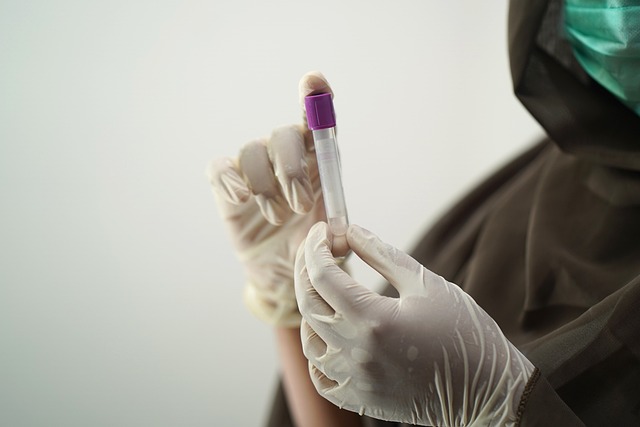Cholesterol testing through Diabetes Blood Test UK is crucial for diabetics as high LDL ('bad') cholesterol levels increase risk of heart disease and stroke. Regular assessments detect abnormal patterns early, allowing healthcare professionals to recommend lifestyle changes or prescribe medications like statins. This proactive management reduces cardiovascular risks associated with the complex interplay between diabetes and cholesterol.
Cholesterol levels are often overlooked as silent indicators of our overall health, but they play a crucial role in maintaining cardiovascular well-being. This comprehensive guide delves into the significance of cholesterol monitoring through blood tests, especially for those in the UK with diabetes.
We explore the science behind these tests, their role in managing diabetes, and practical tips on preparation and interpretation. Understanding your cholesterol levels is the first step towards making informed lifestyle changes to manage this common health concern.
- Understanding Cholesterol: The Silent Indicator
- The Role of Blood Tests in Cholesterol Monitoring
- Diabetes and Cholesterol: A Complex Relationship
Understanding Cholesterol: The Silent Indicator
Cholesterol is a waxy substance found in our blood, essential for building cells and producing hormones. However, it’s often referred to as a ‘silent indicator’ because its effects can go unnoticed until significant issues arise. High cholesterol levels, particularly LDL (low-density lipoprotein) cholesterol, are a risk factor for various health problems, including heart disease and stroke. Regular diabetes blood tests in the UK often include cholesterol checks due to the close link between high cholesterol and metabolic conditions like diabetes. Understanding your cholesterol levels is crucial as it allows for proactive management of your health.
Knowing your numbers can help you make informed decisions about lifestyle changes or medical interventions. For instance, if your test results indicate elevated LDL cholesterol, your healthcare provider might suggest dietary adjustments, increased physical activity, or specific medications to lower cholesterol and mitigate potential health risks. Early detection through diabetes blood tests UK can be a game-changer in preventing long-term complications associated with high cholesterol.
The Role of Blood Tests in Cholesterol Monitoring
Cholesterol level testing is a crucial aspect of maintaining cardiovascular health, and blood tests play a pivotal role in this monitoring process. In the UK, diabetes blood test protocols often include comprehensive cholesterol assessments to mitigate the heightened risks of heart disease among diabetic individuals. These tests provide valuable insights into the levels of low-density lipoprotein (LDL) or ‘bad’ cholesterol, high-density lipoprotein (HDL) or ‘good’ cholesterol, and triglycerides in the blood.
By regularly conducting these diabetes blood tests, healthcare professionals can identify abnormal cholesterol patterns early on. This enables them to recommend lifestyle changes or prescribe medications to manage cholesterol levels effectively. For instance, individuals with elevated LDL cholesterol might be advised to adopt a heart-healthy diet, increase physical activity, and potentially take statins to reduce the risk of cardiovascular events, especially if they also have diabetes.
Diabetes and Cholesterol: A Complex Relationship
Diabetes and cholesterol are two health conditions that often go hand in hand, creating a complex relationship that requires careful management. For individuals with diabetes, whether it’s type 1 or type 2, monitoring cholesterol levels through blood tests is crucial. In the UK, diabetes blood test services play a vital role in helping people stay on top of their health.
High cholesterol levels can significantly impact those with diabetes as it increases the risk of cardiovascular diseases. This is because both conditions share common risk factors such as obesity, poor diet, and a sedentary lifestyle. A simple Diabetes Blood Test UK can provide valuable insights into an individual’s overall health, allowing for early intervention and prevention strategies to be put in place.
Cholesterol level testing through blood tests, especially important for those with diabetes (as highlighted by Diabetes Blood Test UK), plays a pivotal role in maintaining heart health. By understanding cholesterol levels and their relationship with conditions like diabetes, individuals can proactively manage their cardiovascular risk. Regular monitoring, facilitated by blood tests, empowers people to make informed lifestyle choices and, where necessary, seek medical interventions to mitigate potential health issues.
